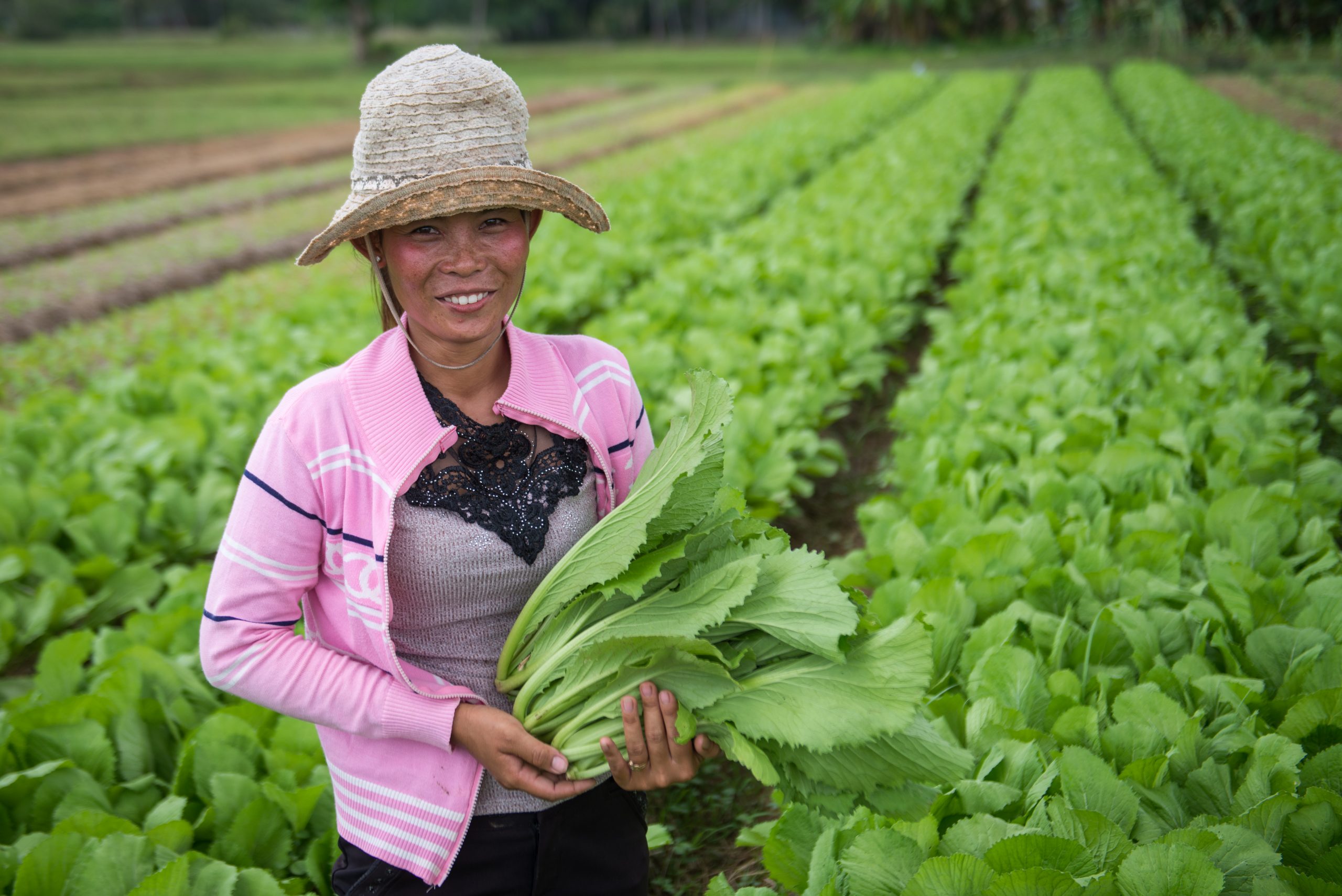In commemoration of International Women’s Day, WE4F celebrates the tremendous efforts of women and girls around the world to shape a more equal future and resilient recovery from the COVID-19 pandemic. Sasmita Patnaik, Gender Advisor for the WE4F South and Southeast Asia Regional Innovation Hub, shares how empowering women has a profound impact for both women and men as we rebuild from the crisis.
Women account for almost half of the agricultural workforce in South Asia and Southeast Asia.123 They are instrumental in crop production, livestock management, as well as the storage, processing and preparation of food. Women also play an active role in water management for agriculture and domestic consumption, while contributing to the energy needs for food production.

Harvesting zucchini from the sandy riverbanks of Bangladesh. PC: Practical Action
Even though women also play a crucial role in ensuring food and nutritional security, they face significant barriers, like limited access to land, financing, markets and mechanization, which limit their personal and familial wellbeing. Women are also often unpaid or underpaid workers and have limited economic decision-making authority, even within their own households. Due to the gendered division of labor, women bear the burden of managing water, food and energy scarcity as part of their unpaid labor. Additionally, the COVID-19 pandemic exacerbated these vulnerabilities. It disproportionately affected women due to their reliance on local markets, lower access to digitalization and government support, and greater responsibility of care at home.
Despite these challenges, women have demonstrated tremendous resilience during this crisis. From supporting food assistance in their communities and taking up non-farm work to compensate the men’s income loss; to managing water and food security for families during lockdown, and navigating the additional care work at home.
If we are to meaningfully recover from the economic and social destruction of the pandemic, women must be at the center of the rebuilding and recovery agenda.
This is particularly important for agricultural recovery, since the sector supports a majority of the workforce in developing countries and emerging economies. Through targeted and integrated programmatic approaches, the private sector, philanthropic organizations, and governments can build gender-inclusive agricultural value chains. Results from these approaches can have monumental results. For instance:
- A 2011 FAO study estimates that closing the gender gap in access to productive resources could increase yields on women’s farms by 20-30% and reduce the number of undernourished people by 12-17% percent.5
- A Global Accelerator Learning Initiative study analyzed data of 14,000 early-stage ventures between 2013 and 2017 and found that ventures co-run by women are nearly 20% more likely to report positive revenues in the prior year than ventures with all-male leaders.6
- A 2019 IFC study indicates gender-balanced leadership teams correlate with 25% greater increase in valuation of business.7
Gender mainstreaming is not just about targeting women. It’s the act of businesses, government policies, and projects taking a critical look at existing inequalities, poverty, and power relations. Grants and investments that encourage gender lens create community level discussions about gender roles and ensure better collective economic and social wellbeing. Gender interventions when integrated with intersectional issues of caste, location, migration, age, disability, ethnicity, and orientation help identify vulnerabilities and opportunities. By reviewing existing structures and developing new gender-integrated approaches, stakeholders can mitigate unintended consequences and produce transformative results.
Water and Energy for Food (WE4F) builds off of Securing Water for Food’s most critical lesson, that not enough was done to impact women and base of the pyramid end-users. Specifically, the gender-based barriers in product development, marketing, financing, monitoring and evaluation, and human resources. To ensure that this result does not happen again, one of WE4F’s primary tenets is to facilitate gender-inclusive programming that lays the foundation for business strategies and enabling environments that promote greater participation and integration of women.

Cambodian farmer holds her produce. PC: Project Alba
To mainstream gender, the program uses key tools like sex-disaggregated data for impact evaluation, a gender lens in technical advisory services so innovators can reach more women as customers, employees, or partners; and investment facilitation support so innovators can access gender-focused investors and investment opportunities.
Through WE4F innovators and program activities, we hope to see persistent ambition and action towards gender equality, especially with a focus on base of the pyramid and marginalized groups. Transformative gender interventions are good for business and for our planet. They multiply development results in poverty reduction, livelihood restoration and responsible consumption. Mainstreaming gender is a smart investment for sustainable impact.
Interested in learning and exploring what gender integration means for you? Check out our resources here, watch the WE4F lessons learned series, or contact us at we4fasiarih@tetratech.com.

Sasmita is the Gender Advisor for the WE4F South and Southeast Asia Regional Hub. She has focused on integrating gender and inclusion lens into her work on policy, entrepreneurship, and energy access. She believes that every individual and institution, no matter what country or sector, could benefit by embracing this new way to understand problems and design solutions.

